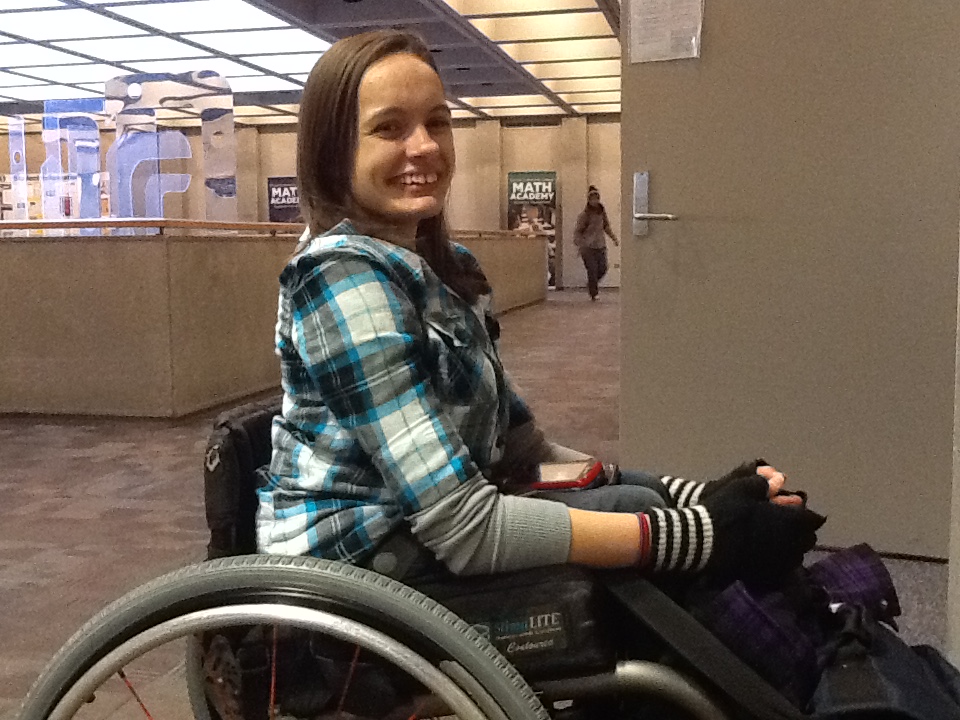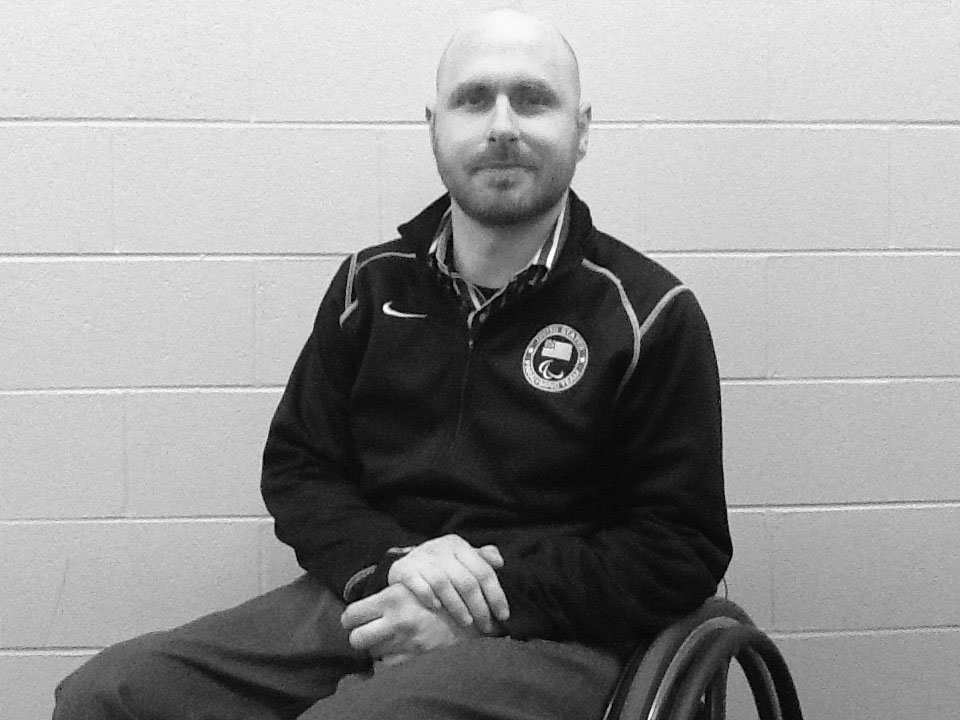According to Sinclair Community College Disability Services Interim Manager Debra Moody, there are over 500 students at Sinclair who are registered with the office of Disability Services.
The office of Disability Services is located in Building 10 on the fourth floor, and students with physical, medical, psychological or learning disabilities are encouraged to bring documentation from their healthcare provider if they wish to register with the department.
 When a student registers with Disability Services, that student will be eligible for assistance on campus at no cost to them.
When a student registers with Disability Services, that student will be eligible for assistance on campus at no cost to them.
Moody said that the type of assistance a student receives depends on what type of disability the student has, but two of the most common requests are for students to get extra time for tests, or to take their tests “in a distraction-free environment,” which is usually Sinclair’s Testing Center.
“Our goal is to help students be successful, and kind of level the playing field,” Moody said.
By ‘leveling the playing field,’ Moody means that disabled students often face challenges related to their particular disabling condition, and that can adversely affect their scholastic performance. The office of Disability Services can assist students in adapting to those challenges.
However, not all Sinclair students who are disabled choose to register with the office of Disability Services.
Jessica Bunn, an accounting major at Sinclair, has been using a wheelchair for 16 years. She told the Clarion that she did not register with the office because she enjoys being independent.
“If somebody asks me, ‘do you need help?’ I usually say ‘no, I’ve got it,’” Bunn said.
Being in a wheelchair doesn’t seem to have slowed her down—Bunn works a part-time job in retail during the school year and she even takes on a second job during the summer.
Bunn’s feisty spirit is belied by her petite stature; she is barely five feet tall, with a slight build and a contagious smile. She can often be found zipping around Sinclair’s campus on her sporty, titanium-frame wheelchair, which features aggressively-cambered, hand-built wheels—and she can do wheelies.
Bunn told the Clarion she finds Sinclair’s campus layout to be relatively manageable.
“I do like how all the buildings are connected on the third floor and basement,” she said.
Another Sinclair student who navigates Sinclair’s campus in a wheelchair is mental health technology major Heidy Louisa.
Louisa is originally from Connecticut, and has been working the same part-time job after school for about three years.
“I work with the best people in the world,” she said.
Louisa said she has not yet registered with the office of disability services.
Louisa is passionate about music and sings for her church choir. She told the Clarion that she has been taking voice lessons in Sinclair’s Music Practicum for about six months.
Louisa said she was called to ministry when she was 22, and that music and singing, as well as her coursework at Sinclair are part of that calling. Her passion became evident when she explained her reasons for studying the subjects that she does.
“I cried when I got my acceptance letter,” Louisa said. “Now that I know—on a spiritual level—what I am called to do … I have so much peace from that. Being able to pursue that [at Sinclair] is a huge blessing.”
Communication major Kraig Knight is another Sinclair student who gets around campus on wheels. He said he is registered with disability services.
Because of the nature of his disability, Knight needs assistance with note taking. He has taken classes at Sinclair and Wright State, and he said that Sinclair’s office of Disability Services is superior to the one at WSU.
“They are always there when I need them,” he said. “They are really flexible.”
Even though Knight is happy with the services the office provides, he said he would like to see Disability Services get more involved on campus.
Knight uses a Power Chair to get around, and he said he finds Sinclair’s campus relatively easy to navigate, except during winter when the snow and ice build up.
“Sometimes, if it’s really icy, my chair will fishtail,” Knight said with a smile.
Knight is well known on campus, but he is quick to downplay his celebrity.
“I’m just an outspoken guy who doesn’t let his disability get to him,” he said.
Business management major Tim Carroll is in his second year at Sinclair, and has been disabled for over 40 years. He registered with disability services last semester.
Like Bunn, Louisa and Knight, Carroll also gets around in a wheelchair, and he said that accommodations for disabled people have definitely improved since the last time he attended college.
Carroll is a soft-spoken East Coast transplant who likes the slower pace in Ohio, and also the fact that there is less snow. He said that when he took classes at Northshore Community College in Massachusetts, the buildings were quite old, and not updated for students with disabilities.
Carroll was not yet in a wheelchair back then, but got around with crutches. He said he found it was much more difficult to navigate the older buildings because there were no elevators.
“It was a lot different than [Sinclair],” he said. “But I managed—I was young back then.”
Jeremy Finton, who is a Sinclair alumnus as well as adjunct faculty in the hospitality management and culinary arts departments, said that Sinclair’s elevators bring to mind an aspect of being disabled that many able-bodied folks may not often think of.
Finton, who uses a wheelchair, said that he doesn’t have many problems getting around Sinclair’s campus. However, he did mention that sometimes folks in wheelchairs get crowded out of the elevators in the busier buildings.
“That just comes with the territory,” he said.
Finton injured himself in a diving accident many years ago, shortly after graduating from Sinclair’s culinary arts program. He has been on Sinclair’s adjunct faculty for about 12 years.
Finton has found an outlet for his athletic abilities with paralympic wheelchair racing. He said that he raced for the U.S. team in the World Championship Paralympic Track and Field races in New Zealand and Australia in 2011. He also took silver and bronze in the Nationals in Atlanta, Georgia in 2006.
 As a faculty member at Sinclair, Finton appreciates the opportunity to make a connection with students.
As a faculty member at Sinclair, Finton appreciates the opportunity to make a connection with students.
“Really, the good thing is having the flexibility to make it work for them,” he said. “The weather, the snow, babysitting … I’ve noticed that a lot of students just give up.”
Like Moody, Finton said he focuses on what can be done to make the situation better for struggling students.
“It’s definitely about enabling the students to be successful,” he said.

